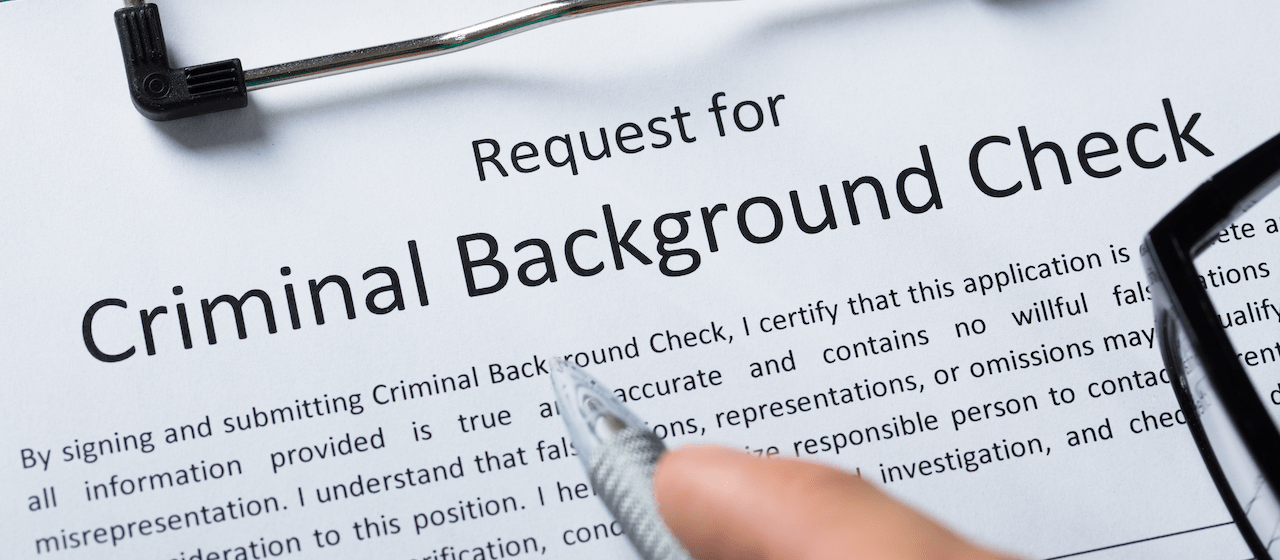Collateral Consequences of Criminal Convictions [Infographics]
When facing the possibility of a criminal conviction, most people generally think of the direct consequences—i.e. the sentence—and are so concerned with the possibility of incarceration or a lengthy probationary sentence that they overlook the collateral consequences of a conviction. Collateral consequences are those other than the sentence imposed as a direct result of a conviction, many of which are permanent and span across every aspect of your life. Below is a brief overview of the wide range of potential collateral consequences stemming from a criminal conviction.
What Happens After a Conviction [Infographic]

Government Assistance After a Criminal Conviction
Government / Federal Aid
Being convicted of a crime can cause you to forfeit any benefits you collect from the government. While incarcerated, you are ineligible to continue receiving Social Security benefits. This means that if your family relies upon your benefits and you become incarcerated, your family will not be able to collect benefits for that period of time.
Certain particularly serious felony convictions (e.g. murder, sexual assault, drug trafficking, etc.) will render you ineligible to receive SNAP (Supplemental Nutrition Assistance Program) and TANF (Temporary Assistance to Needy Families) benefits. Additionally, convictions for certain drug offenses will result in the loss of specific commercial federal benefits, such as any grant, contract, loan, or commercial license provided by a federal agency.
Government / Federal Housing
Federally subsidized housing can also be jeopardized by a criminal conviction. The Federal Department of Housing places certain restrictions on eligibility for housing for potential tenants with a criminal record, and current tenants must abstain from criminal activity. Additionally, the local public housing authorities or the landlords themselves can impose additional restrictions upon housing availability for those with prior convictions. The same applies for housing that is financed through the Section 8 voucher program. Under federal law, housing may be denied based upon a conviction for:
- Drug related activity;
- Violent criminal activity; or
- Other criminal activity which threatens the health, safety, or right to peaceful enjoyment of the premises by other residents
This last category is particularly perilous, as its breadth and vagueness grants individual housing authorities great discretion.
Employment & Education After a Criminal Conviction

Working for the Government Or the State
A criminal conviction can also have serious implications for your future career and employment prospects. Practically every single job with the Federal government requires applicants to submit to a background check. While the depth of the background check and disqualifying factors may vary across the many agencies and depend on the sensitivity of the position, a criminal conviction generally poses a hurdle to employment with the Federal government.
Positions with the State of Florida, on the other hand, may not be denied solely due to a conviction. However, if the conviction is a felony or first degree misdemeanor which directly relates to the job, you may be disqualified from State employment. Additionally, this general protection does not apply to certain jobs such as:
- Positions With Law Enforcement
- Positions in a Correctional Agency
- Firefighters
- County & Municipal Positions Deemed Important to Public Safety
Working for a Private Company
In the private sector, job applicants should be prepared to submit to background checks and answer questions about their criminal history. Private sector jobs that require professional licenses can also be particularly harsh on those with criminal convictions. Although there are close to no checks on a private employer’s ability to refuse an applicant or fire an employee due to criminal history (Florida is an at-will employment state and there is no state law that limits an employer’s discretion here), a person does to some extent have a right to explain their past. The employer must inform the applicant of where the criminal history report was obtained from, provide a copy of the report if requested, and provide the applicant with a chance to dispute the accuracy or completeness of the record.
Background Checks
Certain jobs with the government or in regulated fields require the applicant to undergo either a Level 1 or Level 2 background check. A Level 2 check is more thorough, and includes checking the applicant’s fingerprints. Whether applicants undergo a Level 1 or Level 2 background check, in order to pass these background checks they must not have an open criminal case and must not have been found guilty (regardless of adjudication) of a list of enumerated offenses including:
Unemployment Benefits
Not only can a conviction make employment near impossible to find, but it can prevent you from collecting unemployment benefits as well. While incarcerated, a person cannot receive unemployment benefits. Additionally, if the reason for termination was criminal activity for which you were convicted, you are ineligible for unemployment benefits for up to one year and until you have earned income at least seventeen (17) times your weekly benefit amount.
Financial Aid & Other Educational Limitations
A criminal conviction can also hamper your career before it even starts by precluding certain academic options. Certain drug offenses, if occurring while receiving federal financial aid such as grants or loans, forfeit the student’s eligibility for that aid. Additionally, to be eligible under Florida’s Bright Futures scholarship program, you must not have a conviction (even if adjudication was withheld) for any felony offense. The STARS Scholarship Program has similar requirements; any applicant who has been convicted of a felony, first degree misdemeanor, or drug offense is ineligible.
Not only is financial aid jeopardized, but a student at a state university can be expelled upon violation of any state, federal, or municipal law (although a student can avoid expulsion by providing substantial assistance in the arrest or prosecution of individuals involved in the criminal activity).
Family After a Criminal Conviction
A criminal conviction can significantly impact your family situation.
Termination of Parental Rights
One of the many enumerated grounds for termination of parental rights deals with incarceration. If a parent is incarcerated and one or more of several conditions are met, such as length of incarceration constituting virtual abandonment, that can be grounds for a termination of parental rights. Additionally, a parent’s visitation rights can be negatively affected if that parent has been convicted of a crime against that child. Even if not against the child, restrictions can arise from a conviction of a first degree misdemeanor or felony involving domestic violence, or an offense that would qualify as grounds for termination of parental rights (although this is a rebuttable presumption).
Future Adoption & Child Placement
In addition to affecting your current family situation, a criminal conviction can also prevent you from starting a family through adoption or child placement. Any person, including a parent, who is being considered by DCF for the placement of a child will have to undergo a background check. Certain enumerate felonies, such as child abuse or domestic violence, or battery and drug offenses within the past five years, disqualify non-parents from placement. Moreover, because a child may be placed in an adoptive home, a home-study must be conducted which includes a criminal background check. Although the standard is somewhat vague, if the home-study is unfavorable the parents are not eligible for adoption.
Collateral Consequences of a Felony Conviction [Infographic]

Registering as a Convicted Felon
There are also many consequences that stem from being a convicted felon, regardless of the charge. A person convicted of a felony in Florida must register with the county sheriff within 48 hours of the conviction. Moreover, a person entering Florida who has been convicted in federal court or a different state’s court of a charge that would be a felony in Florida must also register with the sheriff upon arrival to the state.
Your Civil Rights
Additionally, being a convicted felon forfeits your civil rights. This means you cannot serve on a jury, vote, or hold elected office in Florida without first having your civil rights restored.
Your Legal Right to Own a Gun
A felony conviction also has several implications for gun ownership. Normally, a state agency may not deny an application for a permit or license solely on the basis of a lack of civil rights, but an exception exists for a license to carry a concealed firearm. A person may not even possess a firearm or ammunition in Florida if he or she has been convicted of a felony under any state or federal law. A firearms dealer cannot sell a firearm to anyone without first requesting the FDLE to do a criminal history record check.
Miscellaneous Consequences of Criminal Convictions
In addition to the numerous potential consequences of a criminal conviction listed above, there are even more that don’t fit as neatly into larger categories, but are equally important to be aware of.
Driver’s License Suspensions & Revocations
For instance, convictions for certain offenses result in the*suspension or revocation of a person’s driver’s license. These offenses include:
- Driving Under the Influence (DUI)
- Habitual Traffic Offenses
- Drag Racing
- Certain Drug Offenses
Additionally, if convicted of felony possession of a controlled substance while operating a motor vehicle, your driving license will be revoked and you would not be eligible for a hardship license. Similarly, a conviction for prostitution in which a vehicle was used in commission of the crime will result in a driver’s license suspension.
Consequences of a Conviction for Non-Citizens
For individuals who are not United States citizens, there can also be serious immigration implications from a criminal conviction. Criminal convictions can both affect an individual’s ability to enter the country and subject someone currently in the country to deportation. A non-citizen can be deported for a conviction of any one of certain enumerated offenses, ranging from a felony of “moral turpitude” to domestic violence to drug offenses besides possession of less than thirty grams of marijuana.
Future Interactions With the Law
Having a criminal conviction on your record also has certain implications for future interactions with law enforcement or the court system. Having prior convictions can reduce the chance of being released on nonmonetary conditions and can result in a higher bond amount. Criminal history is also a valid consideration in any plea bargaining and is one of the most common forms of sentencing enhancement—prior convictions are a direct part of calculating sentencing guidelines. Additionally, certain misdemeanors such as battery can become felonies if the defendant has been convicted of them in the past.
Don’t Let a Conviction Ruin Your Life
The consequences of being convicted of a crime go far beyond those announced in the court room, and can potentially stick with you for the rest of your life. Not only does that make it crucial to obtain the most favorable outcome possible in your case, but it is also essential to have an experienced defense attorney who can help you prepare for and navigate some of these collateral consequences. If you or a loved one have a pending criminal charge, please don’t hesitate to contact our team of experienced criminal defense attorneys at 386-222-6677 who will do everything possible to help you avoid a criminal conviction.
 Start Your Case Online
Start Your Case Online
- 200+ Years Combined Legal Experience
- 24/7 Support
- Top Rated Criminal, family, and Injury Attorneys
- Flexible Lawyer Payment Plans
- Call Today 386.222.6677